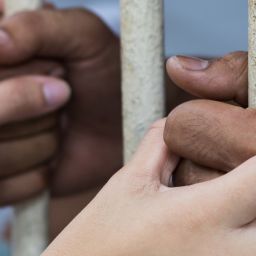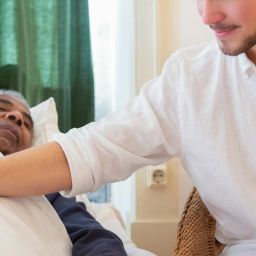Taking the courageous and challenging decision to recover from addiction sets the stage for a new chapter. While detox and rehabilitation lay the foundation for sobriety, it’s aftercare that acts as the cornerstone for sustained well-being. Recognizing the importance of aftercare is crucial for fostering lasting recovery and preventing relapse. It’s the ongoing commitment to aftercare in addiction recovery that significantly contributes to individuals maintaining their newfound sobriety and achieving a fulfilling, substance-free life.
Starting the transformative journey of addiction recovery requires comprehensive support for long-term success. Often overlooked, one critical aspect of this journey is aftercare in addiction treatment—an essential set of strategies and programs providing continued support and guidance beyond the initial stages of recovery. In this article, let’s delve into the significance of aftercare, exploring its various forms, benefits, and the pivotal role it plays in the lives of those overcoming addiction. Understanding the importance of aftercare in addiction treatment is key to fostering lasting recovery and preventing relapse. It’s the ongoing commitment to aftercare that significantly contributes to individuals maintaining their newfound sobriety and achieving a fulfilling, substance-free life.
What is Aftercare in Addiction Recovery?
Aftercare in addiction recovery isn’t an afterthought; it’s an ongoing support system that kicks in once formal treatment wraps up. Think of it as the bridge between structured programs and real-world challenges. While addiction treatment lays the groundwork, aftercare becomes the cornerstone for maintaining the hard-earned progress. It’s not just about dodging relapse; it’s recognizing that mental health and behavioral well-being are integral to the whole picture. By weaving mental health services into aftercare, we’re talking about a comprehensive approach, acknowledging that kicking addiction is part of a broader journey towards a fulfilling, substance-free life. So, after detox and counseling, the baton passes to aftercare, a mix of counseling sessions, support groups, and sober living – the ongoing toolkit for facing the ups and downs of daily life in recovery.
Let’s explore some types of aftercare including outpatient treatment, support groups, and sober living. These diverse aftercare approaches offer individuals tailored strategies for maintaining sobriety and navigating the challenges of post-rehabilitation life.
Outpatient Treatment
Opting for outpatient programs offers a flexible approach, letting individuals continue their addiction treatment while enjoying the comforts of home. It’s like having the best of both worlds – the gradual reintegration into everyday life, paired with the ongoing therapeutic support that aftercare in addiction recovery emphasizes. This way, not only does it address the physical aspects of addiction, but it also pays attention to mental and behavioral health, recognizing the importance of a comprehensive recovery journey.
Support Groups
Jumping into support groups like Alcoholics Anonymous or Narcotics Anonymous isn’t just about meetings – it’s like joining a supportive tribe of people who get what you’re going through. These gatherings create a tight-knit community, offering more than just shared experiences; they become a lifeline in the ongoing journey of addiction treatment and aftercare in addiction recovery. Attending these regular meetings is more than a routine; it’s a chance for mutual pep talks, understanding nods, and a shared commitment to staying on the path of recovery, acknowledging the crucial link between mental health, behavioral health, and the strength drawn from a supportive community.
Sober Living Homes
Think of sober living homes as more than just a place to stay – they’re like a helping hand in the journey of addiction treatment and recovery. These homes go beyond offering a structured environment; they create a supportive community vibe, a kind of training ground for individuals in early recovery. It’s not just about practicing sober living skills; it’s a deliberate step towards relearning independent living while focusing on mental health and behavioral health, acknowledging the essential role these elements play in the broader landscape of rehab centers and recovery journeys.
Benefits of Aftercare
Preventing Relapse
Think of aftercare as your backup crew in the journey of addiction recovery – it’s not just about staying clean; it’s a game-changer in reducing the risk of relapse. This ongoing support isn’t just a safety net; it’s a toolkit filled with coping mechanisms that help individuals navigate life’s twists and turns without resorting to substances. It’s like having a reliable guide, especially when the going gets tough post-rehab centers. But here’s the thing: it’s not just about the individual; it extends to the whole crew – the family. Aftercare recognizes the importance of family support and family health in the recovery process, weaving a community support fabric that goes beyond battling substance abuse and creates a foundation for sustained well-being.
Building a Support System
Imagine aftercare programs as your go-to squad in the rollercoaster ride of addiction recovery – it’s not just a group; it’s your support system on standby. This community isn’t your typical gathering; it’s a lifeline that dishes out understanding, throws in a dose of empathy, and showers encouragement when the going gets tough post-rehab centers. It’s like having your own cheerleading squad, cheering you on during those challenging moments in the battle against substance abuse. This kind of aftercare goes beyond the individual; it’s a testament to the power of community support, acknowledging that the journey to recovery is a collective effort where each member plays a crucial role in the shared triumphs and challenges.
Continued Therapeutic Support
Picture continued therapeutic support as your trusty sidekick in the grand saga of well-being – it’s not just about talking; it’s a dynamic process helping individuals dig into the roots, discover healthy coping mechanisms, and maintain emotional balance. It’s like having a personal guide in the form of counseling and therapy, steering you through the twists and turns of addressing underlying issues. This kind of support isn’t just a band-aid; it’s a toolkit for emotional resilience. Think of it as moral support that goes beyond the surface, delving into the depths of personal growth and well-being, ensuring that the journey isn’t just about surviving but thriving.
Personalized Aftercare Plans
At 70×7 Wellness Mission, we understand that the path to addiction recovery is unique for each individual. That’s why we’re all about personalized aftercare plans that cater to people of all ages. Our team, consisting of highly qualified and professional experts, is dedicated to crafting aftercare plans that go beyond the one-size-fits-all approach. We believe in tailoring our support to your specific needs, ensuring that your journey to sustained recovery is as unique as you are. Whether you’re just starting or have been on this road for a while, our rehab center in Baltimore is here to guide you with a personalized touch.
Seeking Professional Help?
Contact us today, and let’s work together on a plan that fits you perfectly – because at 70×7 Wellness Mission, your recovery is our mission.
Conclusion
To sum it up, aftercare isn’t just a bonus feature in the realm of addiction recovery – it’s the game-changer that boosts the odds of maintaining lasting sobriety. By understanding its significance and actively engaging in aftercare programs, individuals gain the tools and support needed to navigate life’s twists and turns without falling back into the clutches of addiction. It’s not just about recovering; it’s about thriving. So, embrace the aftercare journey – it’s your personalized roadmap to a fulfilling, substance-free life.















